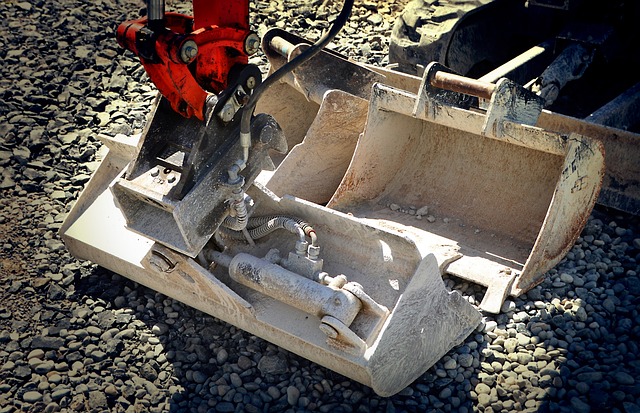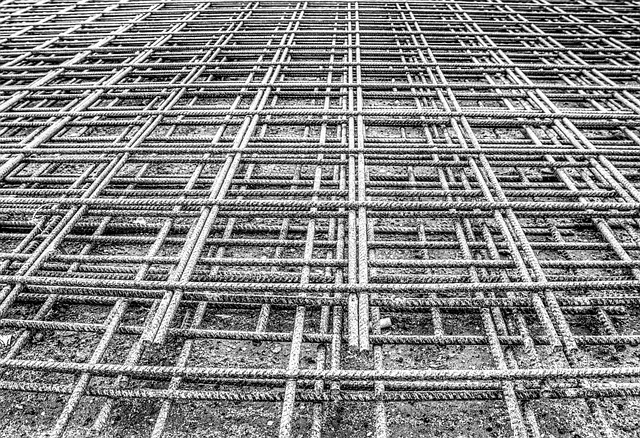A Foundation Inspection is a critical step in structural repair processes, often overlooked but possessing immense significance. Professionals use advanced techniques and tools to examine foundations for cracks, unevenness, or weaknesses, providing insights into stability and integrity. Regular inspections detect early signs of instability like cracks, settlement, or bowing walls, preventing costly future renovations. A professional inspector identifies subtle damage that might otherwise go unnoticed, utilizing advanced tools to spot minor cracks or shifts in foundations. These inspections guide targeted repairs, prevent further damage, and extend the life of buildings.
Warranties for structural repairs offer peace of mind, covering issues revealed during inspections and ensuring durable repairs. When selecting a warranty provider, prioritize companies with proven expertise and a strong reputation, looking for transparent terms and clear coverage details. Regular maintenance, including annual foundation inspections, is crucial to extend warranty validity. Addressing moisture issues, proper drainage, and gutter cleaning alongside inspections safeguards the foundation and ensures the longevity of warranty coverage.
In the realm of home maintenance, ensuring structural integrity is paramount. A comprehensive Foundation Inspection serves as a crucial checkpoint, identifying potential issues before they escalate. This article delves into the significance of regular checks, common structural problems, and the pivotal role of professional inspectors. We explore various warranty coverage options for repairs, highlighting their benefits and how to choose the right provider. Additionally, we provide maintenance tips to extend warranty validity, empowering homeowners with knowledge to safeguard their investments.
Understanding the Importance of Foundation Inspection

A comprehensive Foundation Inspection is an integral part of any structural repair process, often overlooked but possessing immense significance. This initial step involves a meticulous examination of the building’s foundation, aiming to identify potential issues and determining the extent of necessary repairs. Such inspections are crucial, as they provide a clear understanding of the underlying stability and integrity of the structure.
By employing advanced techniques and tools, professionals can uncover subtle cracks, unevenness, or weaknesses in the foundation. This proactive approach ensures that any problems are addressed early, preventing further damage and costly renovations down the line. Effective Foundation Inspection practices play a pivotal role in safeguarding homes and commercial properties, ultimately contributing to their longevity and structural integrity.
Identifying Common Structural Issues

Identifying common structural issues is a crucial step in ensuring proper repairs and extended warranty coverage. Regular foundation inspections play a pivotal role in this process, as they allow for early detection of cracks, settlement, or other signs of instability. By addressing these problems promptly, homeowners can prevent further damage and costly renovations down the line.
During a foundation inspection, professionals assess the overall integrity of the structure, paying close attention to areas prone to issues like bowing walls, uneven floors, and cracks in foundations or ceilings. This thorough evaluation provides valuable insights into potential weaknesses and allows for tailored repair solutions, ultimately strengthening the home’s structural framework.
The Role of a Professional Inspector

A professional inspector plays a pivotal role in ensuring the integrity and safety of structures undergoing repairs, particularly when it comes to foundation inspections. These experts are trained to meticulously assess the condition of buildings, identifying any signs of damage or instability that may not be immediately apparent. By employing advanced techniques and tools, they can detect even the slightest cracks or shifts in the foundation, which are crucial indicators of potential structural issues.
During a foundation inspection, professionals thoroughly examine the basement, crawl spaces, and visible portions of the foundation to verify their stability. They also consider factors like soil conditions, drainage patterns, and nearby structures that might impact the foundation’s health over time. These inspections provide critical insights, enabling contractors to implement targeted repairs and prevent further damage, thereby extending the life of the structure.
What to Look for During an Inspection

During a structural repair inspection, several key elements should be thoroughly assessed to ensure the work is done correctly and effectively. One of the most critical aspects is a comprehensive foundation inspection. This involves examining the base of the structure for any signs of damage, cracks, or instability, as these issues can indicate more serious problems beneath the surface. Experts will look for both visible defects and potential hidden hazards that could compromise the building’s integrity.
Additionally, the inspection should include a detailed review of the overall structural framework, looking for loose connections, damaged support beams, or any other indications of weakness. Understanding the extent and nature of these issues is vital for accurately assessing the scope of repairs required and providing a reliable warranty.
Types of Warranty Coverage for Repairs

When it comes to structural repairs, there are various types of warranty coverage options available to ensure peace of mind for homeowners. These warranties protect against potential issues that may arise after the initial repair work is completed, offering financial security and peace of mind. One common type covers foundation repairs, including cracks and settlement issues, which are often discovered through a thorough foundation inspection. This type of warranty guarantees the stability and integrity of the home’s structural foundation for an extended period.
Another category includes comprehensive building warranties that encompass a wide range of repairs, from roof replacements to interior renovations. These policies typically have different tiers, each covering specific aspects of the structure. Some even provide coverage for unforeseen circumstances like natural disasters or termite damage. Homeowners can choose plans tailored to their needs and budget, ensuring they’re protected against potential costly repairs in the future.
Benefits of Having a Warranty

Having a warranty for structural repairs offers numerous benefits for both homeowners and contractors. One of the primary advantages is peace of mind; it ensures that any issues arising from the repair work will be addressed without incurring additional costs. This is especially crucial when dealing with foundational problems, as a foundation inspection might reveal hidden defects that require immediate attention. A warranty provides a safety net, guaranteeing that the repairs are durable and will stand the test of time.
Additionally, a warranty promotes accountability among contractors. It sets clear expectations and standards for the quality of work, encouraging professionals to uphold their end of the agreement. Homeowners can trust that their investment in structural repairs is protected, knowing that they are not left vulnerable to future complications. This level of assurance fosters a sense of trust and transparency between clients and service providers.
Selecting the Right Warranty Provider

When choosing a warranty provider for structural repairs, especially after a foundation inspection, it’s crucial to consider several factors. Look for companies with an excellent track record and specialized knowledge in structural warranty services. Reputable providers should offer transparent terms and conditions, clearly outlining what is covered and any exclusions.
A reliable warranty service should also provide easy access to support and prompt response times. Check if they offer additional benefits like ongoing maintenance tips or monitoring to ensure the longevity of your repair work. A comprehensive foundation inspection report can help you identify providers who tailor their services to your specific needs, ensuring peace of mind for any structural repairs.
Claiming and Managing Your Warranty

When it comes to structural repairs, managing your warranty is a crucial step in ensuring long-term peace of mind. The process begins with a thorough foundation inspection to identify any issues or potential problems that may arise. This initial evaluation is key, as it establishes a baseline for what is considered within the warranty limits. By engaging professional inspectors, homeowners can be confident that their claims are legitimate and backed by expert insight.
After the inspection, managing your warranty involves clear communication with the contractor or warranty provider. Keeping detailed records of all correspondence, repairs, and any necessary documentation ensures a smooth claims process. Homeowners should also familiarize themselves with the terms and conditions of the warranty, understanding what is covered and what may be excluded. Proactive management allows for swift resolution of issues, ensuring that structural integrity is maintained throughout the warranty period.
Maintenance Tips to Extend Warranty Validity

Regular maintenance is key to extending the validity of your structural repair warranty. One of the most important steps is performing routine foundation inspections. These checks should be done at least annually, or more frequently in regions prone to extreme weather conditions. During an inspection, a professional will assess the overall health of your foundation, looking for signs of damage like cracks, shifting, or water intrusion. Early detection of these issues allows for prompt repair, preventing minor problems from escalating into major, costly repairs that could void your warranty.
In addition to foundation inspections, there are several other maintenance practices to consider. These include addressing moisture issues around the perimeter of your home, ensuring proper drainage away from your structure, and maintaining a safe clearance around utility lines and other overhead services. Regularly cleaning gutters and downspouts is also crucial, as clogged systems can lead to water damage and foundation erosion. By implementing these simple maintenance tips, homeowners can significantly contribute to keeping their structural repairs in top condition and securing the longevity of their warranty coverage.
